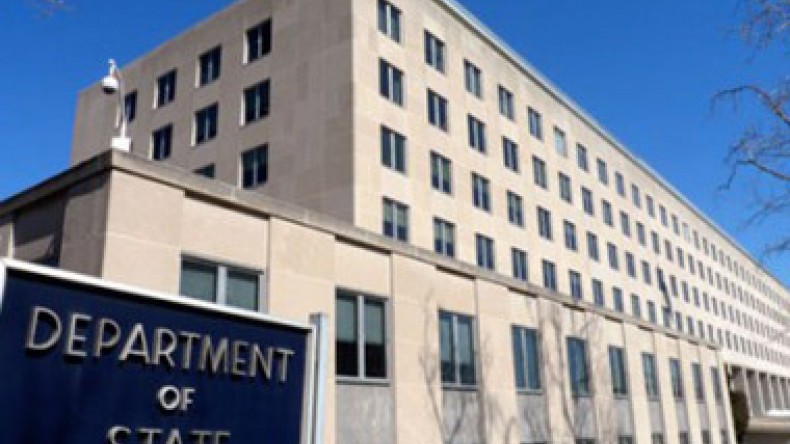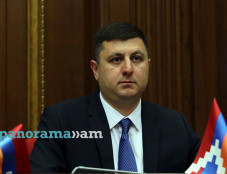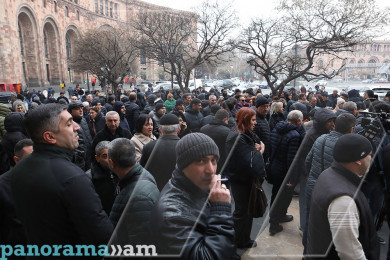
U.S. State Department's annual report on human rights criticizes situation in Azerbaijan sharply
As the annual report on Human Rights Practices of the US State Departmentreads, the most significant human rights problem in Azerbaijan is restrictions on freedom of expression including intimidation, arrest, and use of force against journalists and human rights and democracy activists online and offline, restrictions on freedom of assembly, unfair administration of justice, including continued reports of arbitrary arrest and detention, politically motivated imprisonment, lack of due process, executive influence over the judiciary, and lengthy pretrial detention.
In the report it is noted also about other human rights problems reported during the last year included reports of torture and abuse in police or military custody that resulted in at least four deaths; harsh and sometimes life-threatening prison conditions; continued arbitrary invasions of privacy; restrictions on the religious freedom of some unregistered Muslim and Christian groups; constraints on political participation; corruption at all levels of government; continued official impediments to the registration of human rights nongovernmental organizations (NGOs); violence against women; and trafficking in persons.
The government failed to take steps to prosecute or punish most officials who committed human rights abuses. Impunity remained a problem, the report reads.
The reports also notes that on May 22, parliament passed legislation implementing the constitutional provisions and providing for the ethical treatment of detainees. However, domestic human rights monitors reported that security forces abused 141 persons in custody during the year. Impunity remained a problem. Authorities reportedly maintained a de facto ban on independent forensic examinations of detainees who claimed mistreatment and delayed their access to an attorney.
Touching upon the condition of the prisoners in Azerbaijan the report notes that most of them experienced harsh detention conditions, some of which were life threatening.
“Although minors were also supposed to be held in separate facilities, international monitors observed some children being held with adults. Authorities limited physical exercise for prisoners as well as visits by attorneys and family members,” the report says, and notes that the Ministry of Justice reported that 111 persons died in detention during the year. 84 of the deaths were in medical facilities and due to medical conditions.
It also says that police used excessive force in some cases during the protests surrounding the Eurovision song contest in May.
Touching upon the issue of political prisoners the U.S. Department of State notes that according to NGOs the government continued to hold political prisoners in prisons. NGOs’ lists of political prisoners and detainees included journalists, human rights defenders and opposition party members.
The report also says that the government continued to limit freedom of speech and media independence. “During a media freedom seminar sponsored by a local NGO during Eurovision festivities in May, individuals believed to be planted by the government regularly interrupted speakers expressing criticism of authorities and engaged in long speeches denouncing those who spoke critically of government officials and practices,” the report says.
The Department of State notes that opposition newspapers were available outside of Baku only in limited numbers due to the refusal of a number of distributors to carry them. Foreign broadcasters, including the Voice of America, Radio Free Europe/Radio Liberty, and the BBC, remained prohibited from broadcasting on FM frequencies.
The Department of State mentions that the government prohibited some state libraries from subscribing to opposition newspapers, prohibited state businesses from buying advertising in opposition newspapers, and pressured private businesses not to advertise in them. There were indications that the government monitored Internet communications of democracy activists.
Opposition party members continued to report difficulties in finding jobs teaching at schools and universities. Most known opposition party members teaching in state educational institutions were fired in previous years.
The report reads that NGOs reported that local executive authorities occasionally prevented the expression of minority cultures, for example, by prohibiting cultural events.
Coming up to the corruption issue in Azerbaijan the report noted that the government did not effectively enforce the law, and there were reports of widespread corruption with impunity, including in the civil service, government ministries, and the highest levels of government.
Transparency International and other observers described corruption as widespread in Azerbaijan.
The Ministry of Justice continued routinely to deny registration to some human rights NGOs on arbitrary grounds. “For example, it routinely rejected the registration applications of NGOs whose names contained the words “human rights,” “democracy,” “institute,” and “society,” the report reads and notes that during the year a number of NGOs reported continued pressure against their activities.
Touching upon the women’s rights issue in Azerbaijan the report noted that the Ministry of Internal Affairs reported 19 counts of rape, 12 counts of attempted rape, four counts of violence of a sexual nature, and one count of sexual violence against a minor.
It also notes that in large families in impoverished rural areas sometimes placed a higher priority on the education of male children and kept girls in the home to work. Some poor families forced their children to work or beg rather than attend school. A Baku NGO working with street children reported that boys and girls engaged in street begging and prostitution.
As for the property rights, the report notes that the authorities failed to provide due legal process with regard to property rights, resulting in forced evictions, demolition of buildings on dubious eminent domain grounds, and inadequate compensation for property taken by the state.
The report also refers to violations of rights of sexual minorities and labor right.
Newsfeed
Videos






























